PNY CS2211 XLR8 240GB Solid State Drive Review
Bohs Hansen / 9 years ago
Introduction
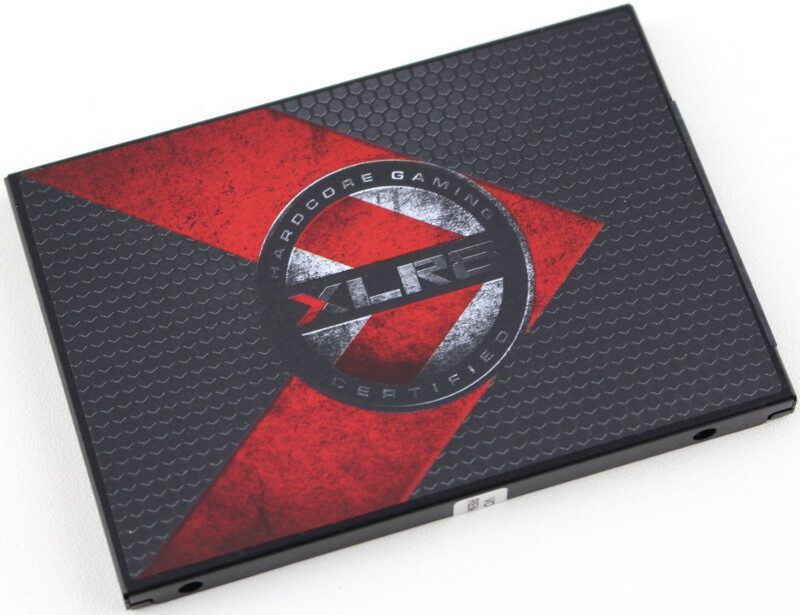
Today’s review is a special one for me as it is the first time I get to review a PNY SSD. I got the XLR8 CS2211 2.5-inch gaming branded SSD on the test bench today and it will be interesting to see how well it does. The PNY CS2211 SSD is available in three capacities from 240GB over 480GB to 960GB from which I’ll be testing the 240GB model today.
PNY is no stranger in the SSD market and they created some great drives in the past for all sectors of the market, but they’re probably most known for their graphics cards. But we aren’t here to talk about graphics cards, it is about storage today. PNY has taken what they have learned from their previous drives and created the XLR8 branded CS2211 drive, and it shows in the performance ratings.
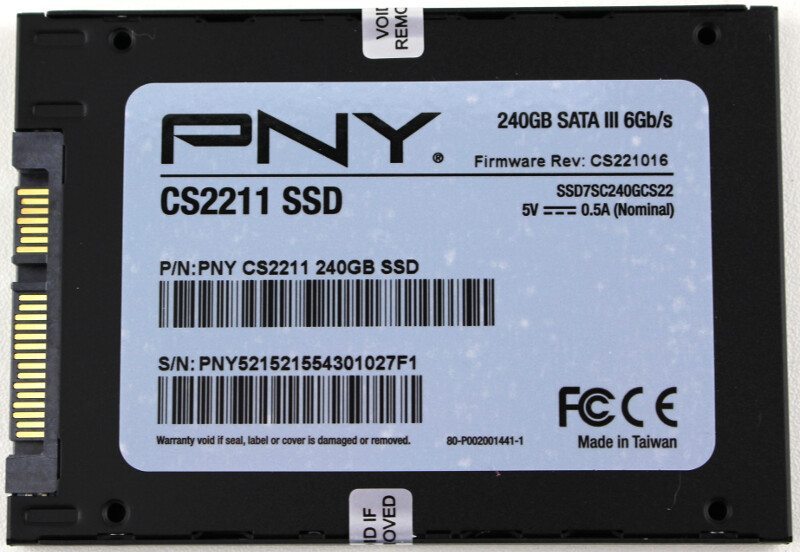
The drive is rated for a sequential performance of up to 565 MB/s reading and 540MB/s writing, which is about as good as it gets on the SATA3 interface. The random input-output performance is equally impressive with 95K IOPS ratings for both reading and writing. Those are at least the ratings for the larger models and the small 240GB version can’t keep fully up with that. It still comes with impressive ratings despite being a little slower ,with an 87K IOPS rating and a drop in sequential writes to 470MB/s.
It is no surprise that the drive has such good ratings as it is built with only the best components. It utilizes 15nm Toshiba MLC NAND and a Phison PS3110-S10 controller aided by 256MB DDR3 cache package
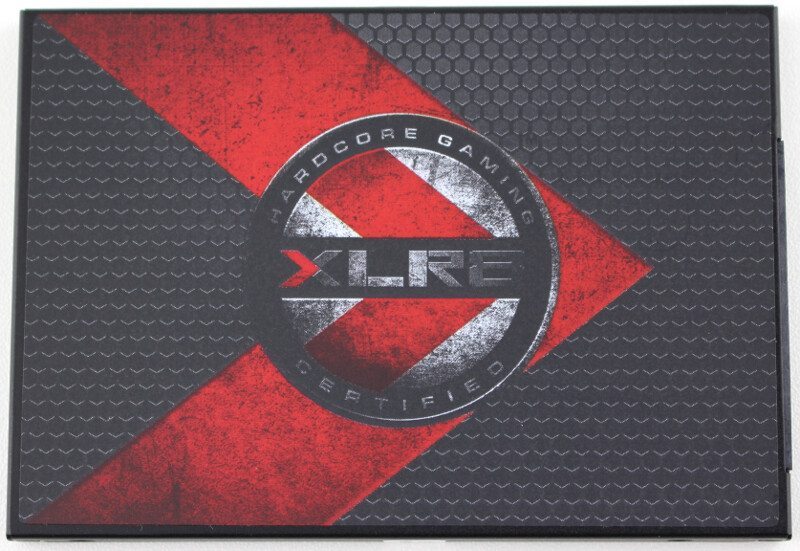
PNY gave the CS2211 the XLR8 styling as a gaming product, but the design has been toned down a bit in comparison to the previous XLR8 drive design. It is a beautiful design that makes the drive stand out and also makes in an optimal candidate for systems that proudly shows what components they are made off.
There are a lot of products that get a ‘gaming’ label in order to appeal to that market segment, but the CS2211 does deserve this label. It is a perfect gaming drive thanks to its high IOPS performance on top of the high sequential performance. You’ll copy fast, load fast, and should experience even less loading times in-game.
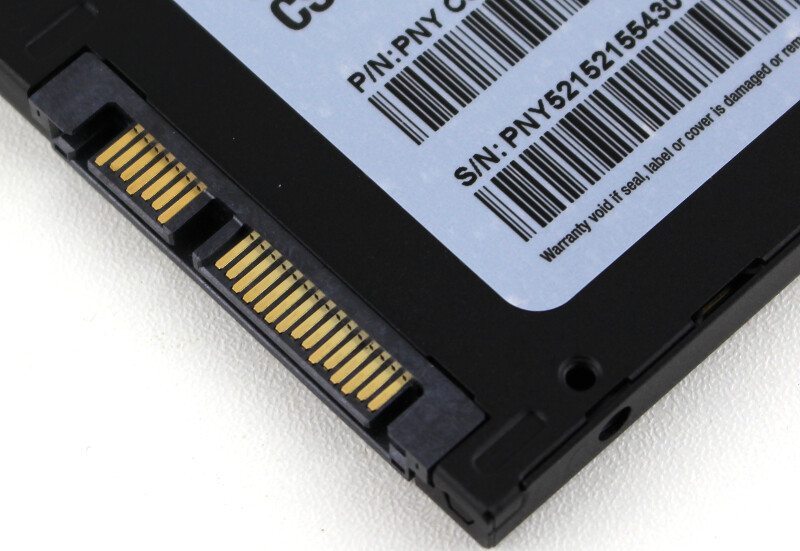
Feature wise we find the basic Trim and SMART capabilities, but the CS2211 also comes with background garbage collection, end-to-end data protection, and error correction code for up to 120 bits per 2K sector. Overall, we see a drive that presents itself very well and PNY agrees with a 2 million hours mean time before failure rating and a full 4-year warranty.

The 7mm slim drive is perfect for usage in both desktop and notebook systems where it also will fit well in 9.5mm drive bays thanks to the included adapter bracket. The SSD doesn’t feature the DevSleep function that I really like to see in drives, but that isn’t a deal breaker and most gamers don’t want power saving features, they want pure and raw performance which the CS2211 delivers.
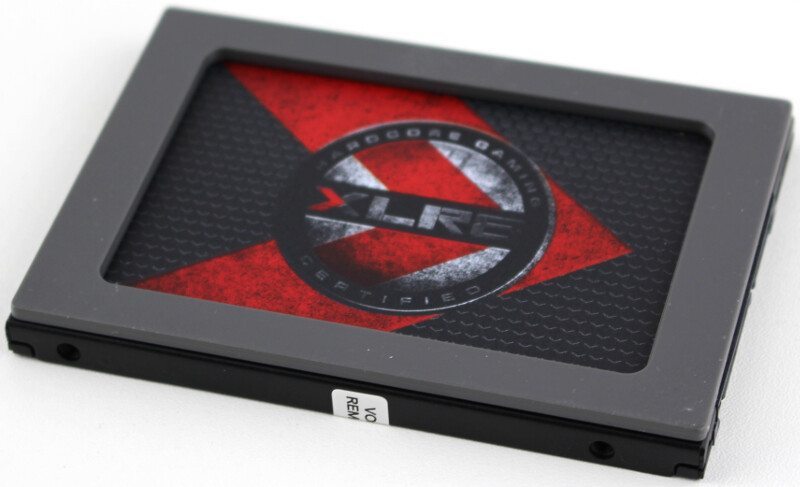
Aside from the beautiful brand sticker on the top, the drive is built with a standard 2-piece snap-together enclosure that holds the PCB and doesn’t require any screws that could loosen themselves over time in high-vibration environments.
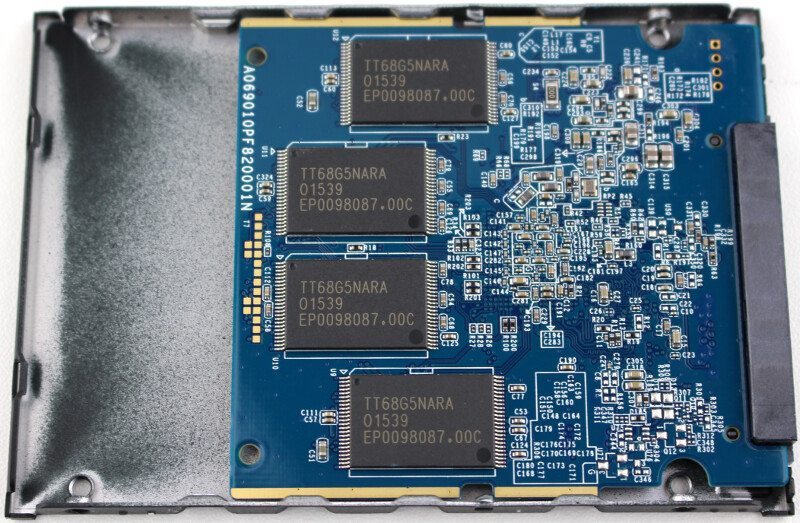
The PCB itself is a two-thirds length one with a total of eight NAND chips distributed over the front and back. The Phison PS3110 S10C controller sits firmly in the middle of the PCB. Next to it we also see the Nanya DDR3 cache chip that helps the drive to achieve the great speeds that it can.
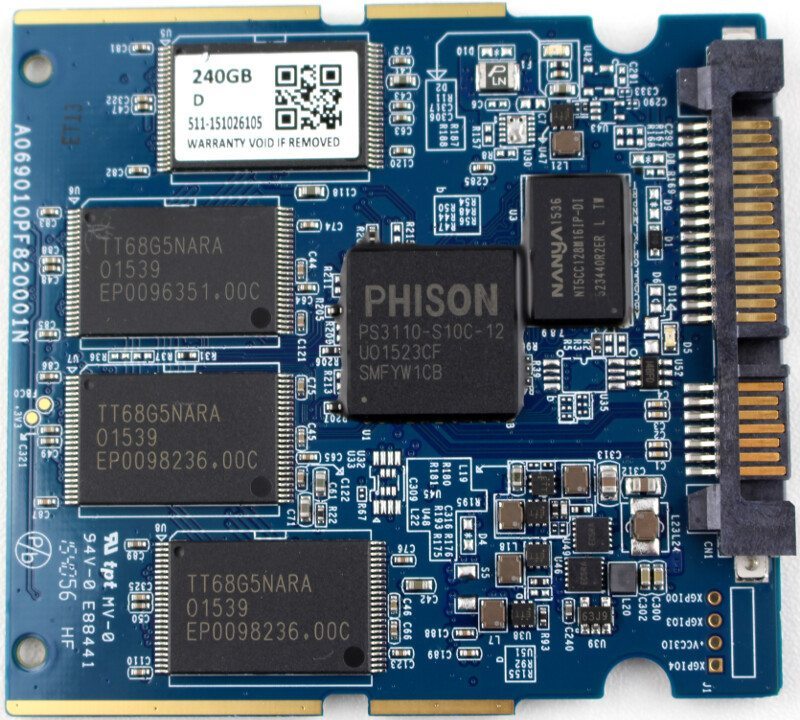
Specifications
- Capacity: 240GB
- Part Number: SSD7CS2211-240-RB
- Form Factor: 2.5 inch
- Height: 7mm
- Interface: SATA-III 6Gb/s; backward compatible with SATA-II 3Gb/s
- Max Sequential Read Speed: 560 MB/s
- Max Sequential Write Speed: 470 MB/s
- Max Random Read Speed: 87,000 IOPS
- Max Random Write Speed: 95,000 IOPS
- NAND Type: MLC
- Ideal For: Gaming, Hard disk drive replacement, photo and video storage, and boot drives
Packaging and Accessories
The PNY XLR8 CS2211 solid state drive came packed in a simple black box with the PNY logo on the side.
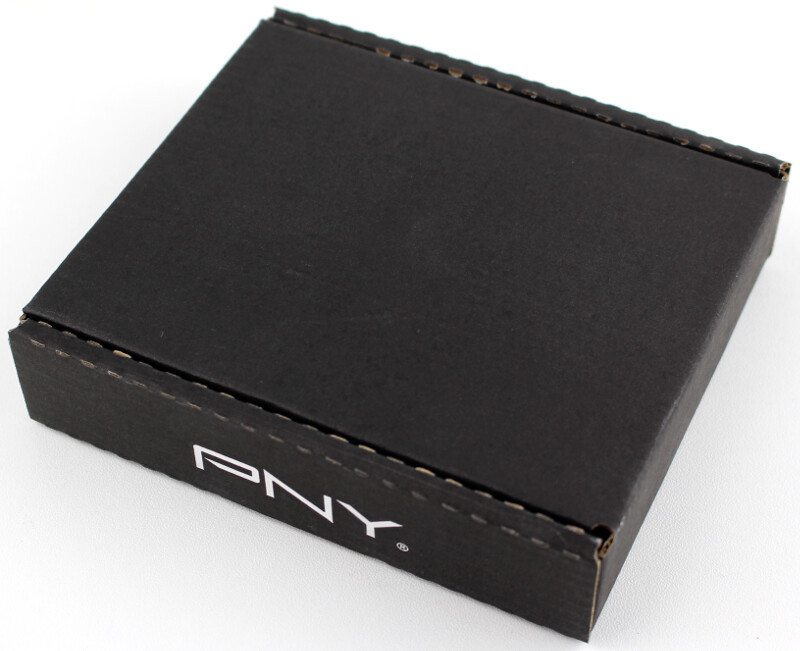
Inside the box is the SSD itself as well as a 9.5mm adapter for usage in notebooks and laptops designed for the 9.5mm thick drives. By adding the adapter to the drive, you make sure that it’s firmly seated in the system and doesn’t rattle around.
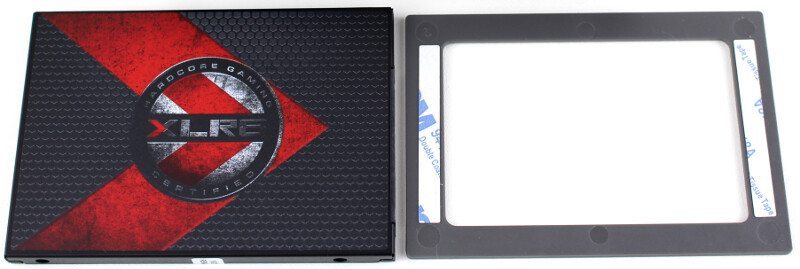
Normally you’d get the drive in a more colourful wrapping and with an included registration key for the Acronis True Image cloning software. Review samples like this one sometimes come with a few things missing because the company is in a hurry to get the drives to us so we can test them for you – and they know that we don’t need the extras.



















